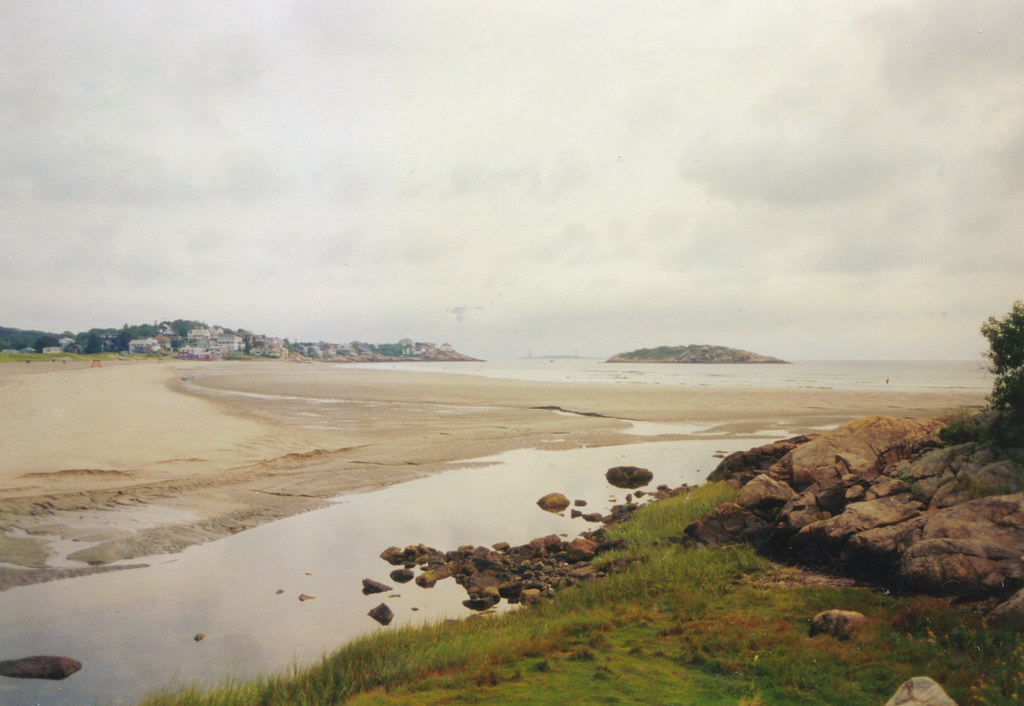.

The Dry Salvages (Cape Ann), seen in distance between the island and the coast: photo by Martin Kuilman, 2010
It seems, as one becomes older,
That the past has another pattern, and ceases to be a mere sequence --
Or even development: the latter a partial fallacy
Encouraged by superficial notions of evolution,
Which becomes, in the popular mind, a means of disowning the past.
The moments of happiness -- not the sense of well-being,
Fruition, fulfilment, security or affection,
Or even a very good dinner, but the sudden illumination --
We had the experience but missed the meaning,
And approach to the meaning restores the experience
In a different form, beyond any meaning
We can assign to happiness. I have said before
That the past experience revived in the meaning
Is not the experience of one life only
But of many generations -- not forgetting
Something that is probably quite ineffable:
The backward look behind the assurance
Of recorded history, the backward half-look
Over the shoulder, towards the primitive terror.
Now, we come to discover that the moments of agony
(Whether, or not, due to misunderstanding,
Having hoped for the wrong things or dreaded the wrong things,
Is not in question) are likewise permanent
With such permanence as time has. We appreciate this better
In the agony of others, nearly experienced,
Involving ourselves, than in our own.
For our own past is covered by the currents of action,
But the torment of others remains an experience
Unqualified, unworn by subsequent attrition.
People change, and smile: but the agony abides.
Time the destroyer is time the preserver...

Sunrise, Gloucester, Massachusetts, 1 January 2011: photo by Brian O'Connor, 2011
T.S. Eliot: The Dry Salvages (excerpt), 1941, from Four Quartets, 1944